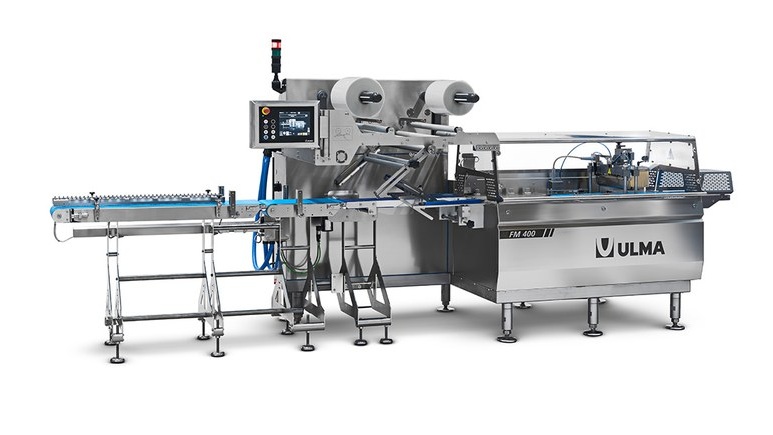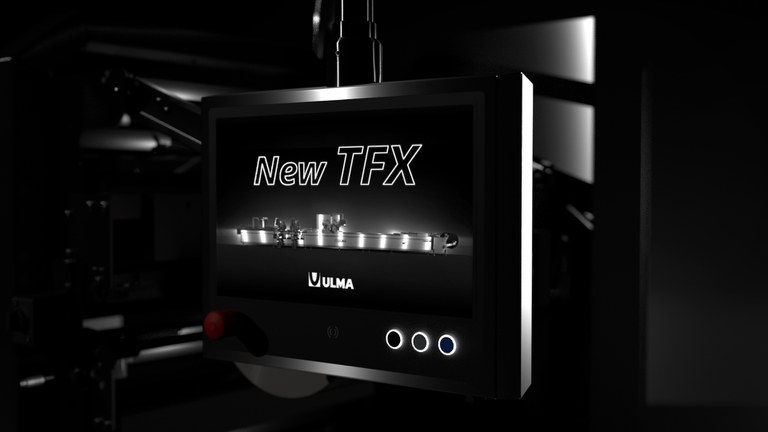Packaging
ULMA Packaging scales up pioneering produce Natoora's plastic-free packaging operations in United Kingdom
Founded in 2004 as the world?s first online farmer?s market, Natoora supplies directly sourced and seasonal produce to restaurants, retailers and straight to consumers through its own stores. The company aims to revolutionise the current food system and improve sustainability by building completely transparent supply chains from farm, to shelf, to plate. With business booming due to more awareness around the benefits of choosing seasonal fruits and vegetables over intensively grown year-round produce, in 2019 the company decided to further expand its operations. At the same time as growing the business, it was important to Natoora that its produce should be packed using environmentally friendly materials. Key to this was developing plastic-free packaging. Natoora?s in-house team envisioned a fully recyclable, flow-wrapped carton punnet, featuring home compostable film from the Israeli flexible packaging provider TIPA. Unlike traditional plastic flow-wrap, the TIPA material is certified as home compostable.
23 December, 2021
Founded in 2004 as the worlds first online farmers market, Natoora supplies directly sourced and seasonal produce to restaurants, retailers and straight to consumers through its own stores. The company aims to revolutionise the current food system and improve sustainability by building completely transparent supply chains from farm, to shelf, to plate. With business booming due to more awareness around the benefits of choosing seasonal fruits and vegetables over intensively grown year-round produce, in 2019 the company decided to further expand its operations. At the same time as growing the business, it was important to Natoora that its produce should be packed using environmentally friendly materials. Key to this was developing plastic-free packaging. Natooras in-house team envisioned a fully recyclable, flow-wrapped carton punnet, featuring home compostable film from the Israeli flexible packaging provider TIPA. Unlike traditional plastic flow-wrap, the TIPA material is certified as home compostable. However, identifying a packaging solution was only part of the challenge for Natoora. The company also needed to appropriately package the large quantities of punnets supplied to Natooras retail partners. It was therefore clear that investing in new and reliable packaging machinery was key to the businesss continued growth and advancement of its sustainability agenda. Pioneering packaging To provide a solution to Natooras eco-conscious expansion brief, the search for a pioneering machinery packaging solution began. We prioritise sustainability in all we do, so when developing a plastic-free packaging solution, we knew it was important to work within our retail partners frameworks, says Jacopo Arpesani, Chief Operating Officer at Natoora. We knew shoppers were drawn to the convenience of pre-packs, so a solution that could work at scale, eliminate plastic and work flawlessly within existing distribution systems was a must." Yet in order to meaningfully change the way our customers would receive our produce both online and in-store, we needed machinery that could manufacture large volumes of our new, eco-friendly punnet. This new packaging solution would be key to meeting the growing demand for our produce, so ensuring it was compatible with the compostable TIPA film was also vital. Natoora approached a number of packaging machinery suppliers to identify a solution appropriate to their needs, for their facility in Bermondsey, London. Specifically, any potential machine would need to address the complex logistics around moving and protecting incredibly ripe, seasonal produce supplied to Natooras retail partners. With the exception of hardy storage crops, such as onions and potatoes, softer produce needs more defence against product bruising. As such, the need for a scalable solution that could provide added, compostable packaging for more protection was paramount to avoid vast quantities of food going to waste. Furthermore, smaller items offered by Natoora that usually come in bunches, such as grapes or datterini tomatoes, required sealed packaging to avoid getting lost in transit. ULMA Packaging UKULMA PACKAGING stood out as the most capable and understanding of Natooras discerning environmental standards and priorities, while offering an extremely high level of service befitting their outstanding reputation as a packaging machinery provider to the produce sector. Particularly, the company was very impressed with ULMAs commitment to developing a bespoke solution that could use the TIPA material. Alongside equipment that was first class in terms of reliability and design, we wanted a supplier we could use as a consultant on how best to package and present products to the consumer, explains Jacopo. With these aims in mind, ULMA really appealed to us their team was friendly, approachable, knowledgeable, and, most of all, they cared about our business. They were very like-minded in their focus on sustainability, which was obviously very important to us. Now tasked with providing an efficient, adaptable packaging machine suited to Natooras needs, ULMA carried out a detailed specification process, which considered the size and dimensions of the new punnet, and the fruit and vegetable produce it would contain. The ULMA team also visited Natooras facility to better gauge how the machinery would fit into the produce suppliers existing production line and site processes, and ran trials with the TIPA material to ensure its viability. Following this important step, ULMA recommended the SIENNA Horizontal Flow Wrapper (HFFS). Ideally suited to flow-wrap irregularly shaped products such as fresh produce, the SIENNA is a highly flexible and reliable solution for the food industry. Its versatility means it is also compatible with various different materials, making it suitable to an extensive range of company needs and packaging applications. Following the extensive research and development carried out on this project, this now includes the compostable film provided by TIPA. Sustainability in mindThe SIENNA is a very robust and adaptable machine that is extremely well-suited to packaging Natooras produce, says Ed Williams, Sales Director at ULMA Packaging UK. These characteristics have allowed the machine to slot seamlessly into the companys operations and help meet ever-growing product demand from its retail partners. Because of the SIENNA, Natoora can expand its commitment to a plastic-free future, enjoying peace-of-mind that more fully biodegradable packaging solutions will be put on shelves without sustainability being compromised. More so than ever, customers expect suppliers to reduce plastic while maintaining product quality, and our work with Natoora is a perfect example of how this can be done at scale." Sustainable innovations such as those offered by Natoora and through our #ULMAweCare project are vital to reducing packaging and increasing the use of recyclable and biodegradable materials. To that end, we were incredibly pleased to work with Natoora, who share our ethos for embracing alternative machinery packaging solutions. Profound effectULMAs packaging machinery is already having a profound effect on Natoora and its mission to transform how fresh produce is packed, moved and distributed through supply chains. Because of their ability to provide compostable packaging on a larger scale, the company are removing a staggering 2.2 million plastic pre-packs a year. Our mission is to revolutionise the food system from start to finish, and ULMA are definitely helping us achieve this aim, says Jacopo. This would not have been possible without the SIENNA flow-wrapper, which has taken us to the next level as far as providing plastic-free packaging is concerned." ULMAs assistance throughout the specification and installation process has been nothing short of exceptional. They are very switched on to challenges facing the environment, and like us are passionate about leading the way in developing sustainable packaging solutions of the future.
https://youtu.be/crCobDEhf4Q











